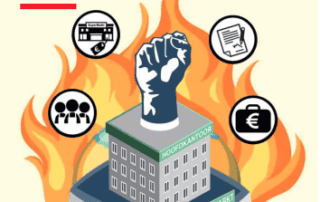No violation of standstill obligation
The Northern Netherlands District Court ruled in a judgment dated February 21, 2024, ECLI:NL:RBNNE:2024:548, that – despite the fact that the legal standstill period of at least 4 weeks had not been observed – the franchisee had no reasonable interest invoking the statutory regulations.
According to the franchisor, the parties had been in contact for months about the prospective franchisee opening a franchise location. According to the franchisor, the intended franchisee could not wait until he could sign the franchise agreement, had had all kinds of information for some time, had ample opportunity to ask questions (he did so) and was aware of ( his rights regarding) the legal standstill period.
In the court’s opinion, the prospective franchisee rightly argues that the standstill period regulation has been included in the law to protect him as a prospective franchisee. The prospective franchisee does not argue that he would have acted or decided differently if the franchisor had observed the statutory cooling-off period. For example, the prospective franchisee does not take the position that – if the draft of the franchise agreement had been provided to him four weeks before concluding the franchise agreement – he would have asked the franchisor further questions, sought advice and/or consulted with the franchisor and ultimately (for whatever reason) would not have signed the franchise agreement or would have concluded the franchise agreement under different conditions. The court takes into account that the prospective franchisee, even after 4 weeks had passed after signing the deed, did not make any comments on its contents and continued to implement the agreement.
Because of the foregoing, the court agrees with the franchisor that it should be assumed that the prospective franchisee has not been harmed in any respectable interest by prematurely signing the deed. The prospective franchisee’s appeal for annulment of the agreement due to failure to observe the statutory cooling-off period (as referred to in Article 7:913 paragraph 2 under a of the Dutch Civil Code and Article 7:914 of the Dutch Civil Code) is therefore, in the opinion of the court, standards of reasonableness and fairness unacceptable.
Ludwig & Van Dam lawyers, franchise legal advice.
Do you want to respond? Then email to dolphijn@ludwigvandam.nl

Other messages
Post non-competition ban without a signed franchise agreement
Is a franchisee bound by a post-competition ban without a ...
Post non-compete clause in hard franchising
The summary proceedings judge of the Amsterdam District Court ...
Does an agreed rent indexation always apply?
Many entrepreneurs were confronted with a significant rent increase ...
Ludwig & Van Dam in Distrifood Magazine about the Franchise Act
Interview about the current obstacles for independent supermarket entrepreneurs and ...
No franchise agreement, but membership of a cooperative
In certain cases, agreements made in a franchise agreement may ...
Post prohibition of competition and transfer of the business to the life partner
A franchisee is a company. The franchisee and the private ...







